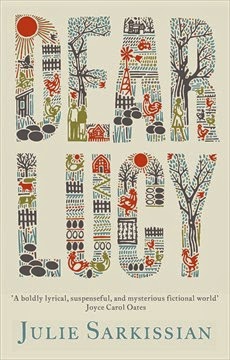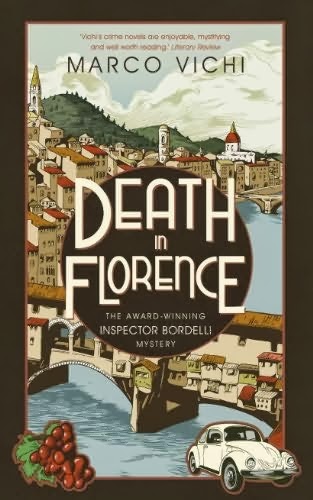A real treat for you this week as I will be reviewing the latest two books I've read together. Yes a double whammy of books to read! Too much I hear you scream? Well fear not. I have not just lumped any random two books together. Both of these books I'm about to talk about deal with very similar issues. Whilst they are aimed at different audiences, they are both harrowing stories involving the plights of young girls and women, both with hugely varying effects...
Sometimes I just can't plan these things. But I happened to put these books next to each other without really knowing the real issues that both of the books dealt with. Oh well worked out well for me! I feel a little bit like I am back at university comparing two novels, but do not worry, there will be not a Harvard reference insight.
 Dear Lucy
Dear Lucy, the first of our two female led novels, is told from the perspective of three different women, all at various stages of their life. The main character revolves around Lucy, or Dear Lucy as her mother so affectionately calls her. It is clear from the outset that Lucy has a psychological condition. She seems to hear and see things that others don't, as well as being extremely aggressive towards people when they do not help her. This has led to her being thrown into living with the mysterious Mister and Missus, the latter of who makes up our second perspective, with the third being from Samantha, a girl who is also living with them. It is clear none of them are related. From the very start, the book put me on edge. It was very hard to like any of the characters, and being such strong females, I found it uneasy to relate to any of them. There is a constant sense that everything will be explained, and in dribs and drabs it slowly begins to form. But this takes time. An awfully long time.
The whole idea for the story is extremely unique, with the idea of Mister and Missus running some sort of halfway house for troublesome female children. Missus, whom we later find out can't have children so instead has adopted before, remains until the end far too unexplained and complex. With her back story of the death of her previous adopted child, along with her soon-to-be child courtesy of pregnant teenager Samantha, there is a deep sense of tragedy, but Sarkissian misses the mark with her. As for the other characters, Lucy's parts must be read slowly in order to follow her warped sense of being and thinking, and Samantha's typical tearaway teenager attitude, soon becomes tiresome. There are also some quite unbelievable and forced parts, especially the parts where Lucy roams around on her own talking to the chicken egg foetus (yes you read that right) she carries around in her pocket called Jennifer. Sarkissian, for me, doesn't quite make it sympathetic enough, instead giving Jennifer an annoying quality.
 If You Find Me
If You Find Me also features some strong female leads, except at a much younger age. At the time of reading it, I didn't even realise that the audience for the book is the young adult market. It was written with such a maturity, and dealt with such serious issues that I didn't even cotton onto the intended audience. The book is told from the viewpoint of Carey, a 15-year- old girl who, at the start of the novel, is fond living in a camper van in the middle of an American National Park with her younger sister. Abandoned by their drug addicted mother for sporadic periods of time, the mother has finally written to the social services who go, along with Carey's father, to discover them in squalid conditions.
At first, Carey is very distrusting of the outsiders, as anyone of her young age would. This is added to even more once we begin to learn details of just exactly her and her half- sister have been through. Having been taken away before she could remember many things, Carey has been raised in a life full of her mothers' lies. Murdoch so well captures this innocence of a teenage girl, as well as her mute half- sister Jenessa. Murdoch plays with dangerous territory when she almost slips into a high school novel when the two girls start school, but manages to keep the serious tone when Carey finally admits to a tragic, yet necessary crime that has been haunting her.
There are so many poignant moments in the book that made my heartache. Having to read the passages about Carey's being used so disgustingly by her mother made me wince, and it is no wonder why her little sister is so scarred she hardly talks. But the story develops into something we all want. Hope. Family. Comfort. It may have been interesting to eventually hear from the mother again, but she is never seen in the present throughout the novels. But this is one very small flaw in Murdoch's brilliant novel.
Whilst I may not have been the target audience for either novel, I found myself looking at both extremely differently. Both deal with terrible situations, as well as coming from almost completely female voices, but even though they are for different audiences, the writing of both is so complex and subtly interwoven into all the tenses, that I eventually enjoyed both. I did struggle with
Dear Lucy for awhile, but I didn't put it down, meaning deep, deep down I liked it enough to finish it. The characters are extremely intriguing. As for
If You Find Me, I truly sympathised with Carey and Jenessa throughout. Whilst sometimes Murdoch may drag out the transition period for the two girls, it is only realistic that it takes so much time for them to even start to feel comfortable in a normal family environment. I felt guilty, I felt sad, I felt hope. I highly recommend both books if you enjoy books with strong, female roles, dealing with moments in their life that none of them will want to look back on.
Dear Lucy by Julie Sarkissian is published by Hodder and Stoughton in the UK.
If You Find Me by Emily Murdoch is published by Indigo, an imprint of Orion Books in the UK.




.jpg)




.jpg)



